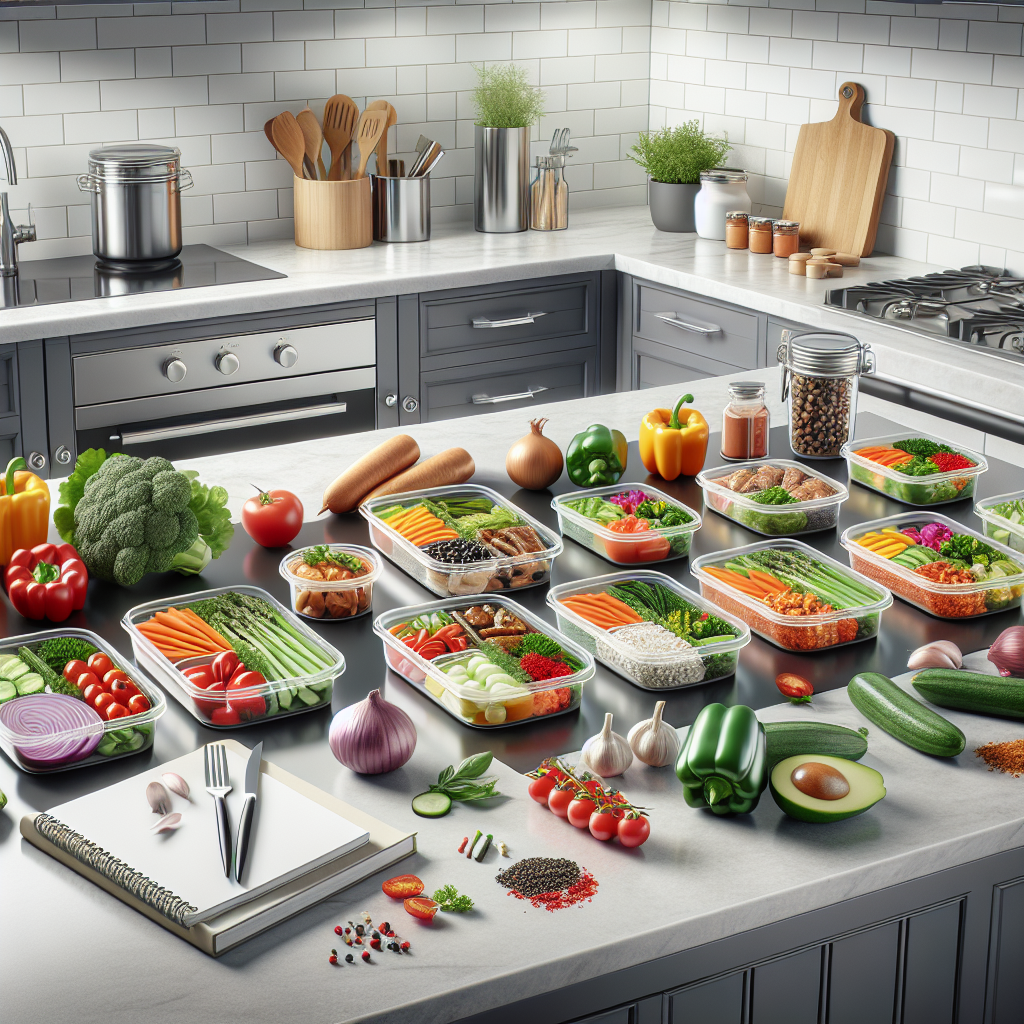Meal prepping is more than just a trend; it’s a sustainable lifestyle choice that can save you time, money, and stress throughout the week. By planning your meals in advance, you can make healthier choices, reduce food waste, and ensure that you have balanced nutrition. Here are some actionable strategies to help you maximize your meal prep for success.
1. Set Clear Goals
Before diving into meal prep, define your objectives. Are you looking to eat healthier, save money, or simply streamline your daily cooking? Setting clear goals helps you make informed decisions about what and how much to prepare, ensuring your efforts align with your needs.
2. Plan Your Menu
Creating a weekly menu is crucial for organized meal prep. Choose recipes that:
- Utilize similar ingredients to minimize waste.
- Are easy to prepare in bulk.
- Can be stored well or frozen for later use.
Consider using themes—like Meatless Mondays or Taco Tuesdays—to simplify your planning.
3. Invest in Quality Containers
Selecting the right containers is essential for efficient meal prep. Opt for:
- BPA-free plastic or glass containers that are safe for freezing and microwaving.
- Varied sizes for different portions, including snack sizes for things like nuts or salad dressings.
- Stackable designs to save space in your fridge.
Clear containers help you quickly identify what’s inside, reducing the chance of food spoilage.
4. Batch Cooking is Key
Batch cooking involves preparing large quantities of a single dish that can be portioned out for the week. Here are some tips:
- Cook grains like rice or quinoa in large batches; they hold up well throughout the week.
- Roast a mix of vegetables that can complement multiple meals.
- Prepare proteins such as chicken, tofu, or beans in large amounts to add to various dishes.
5. Include Variety to Avoid Boredom
Eating the same meals repeatedly can lead to meal prep burnout. To keep things exciting, include a mix of:
- Different cuisines (Mexican, Italian, Asian).
- Various proteins (chicken, fish, legumes).
- Vegetables and grains that change weekly.
This diversity ensures you stay engaged and satisfied with your meals.
6. Snack Prep is Just as Important
Don’t overlook the power of snack prep. Having healthy snacks on hand can curb cravings and prevent unhealthy eating. Consider prepping items like:
- Cut vegetables with hummus or guacamole.
- Mixed nuts or energy balls.
- Homemade granola or protein bars.
7. Take Advantage of Freezing
Freezing meals is a game-changer for meal prepping. Here’s how:
- Portion meals into single servings to make reheating easy.
- Use freezer-friendly bags to save space.
- Label containers with the date and contents; this helps avoid questions like, “What’s this?”
8. Utilize Slow Cookers and Instant Pots
These kitchen gadgets can significantly ease your meal prep process. You can set it and forget it, making dinner a breeze. Consider meals like soups, stews, and curries that can be made in one pot.
9. Stay Organized
Organization is a key component of successful meal prepping. Keep your ingredients and prep tools in order:
- Dedicate a shelf in your fridge for meal prep items.
- Maintain a shopping list for restocking essentials.
- Utilize a planner or app to schedule your cooking sessions.
10. Start Small and Adjust as Needed
If you’re new to meal prepping, don’t overwhelm yourself. Start with two or three meals a week and gradually increase your prep as you get more comfortable. Experiment with different recipes and techniques until you find a rhythm that works for you.
Conclusion
Maximizing your meal prep can lead to a healthier lifestyle, saving you time and reducing food waste. By setting clear goals, planning effectively, and staying organized, you can streamline your cooking process and enjoy delicious, home-cooked meals throughout the week. Start small, and soon, meal prepping will become a seamless and beneficial part of your routine. Happy prepping!

